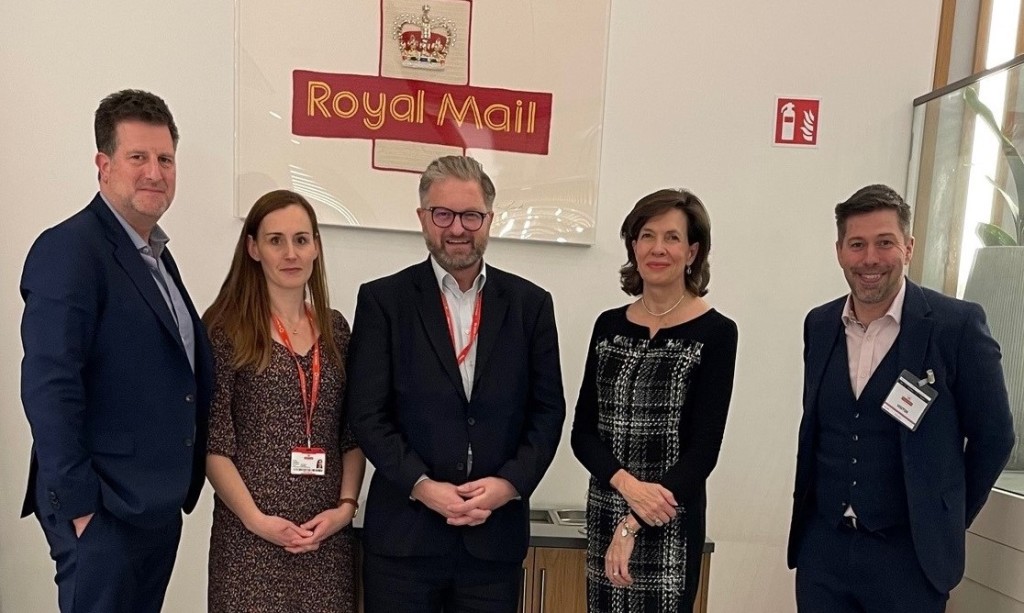Overall boss pledges to deliver Christmas for customers – but welcomes Ofcom’s USO review
The new overall head of Royal Mail has declared he believes the business has “great potential” even though the parent company revealed a half-year loss of £319m and the delivery service has been fined £5.8m.
Pledging to “deliver Christmas for our customers” Martin Seidenberg, who become ceo of International Distributions Services (IDS) in July, has agreed to recruit 16,000 seasonal staff and open five temporary sorting centres.

And he said: “We have two businesses with great potential – Royal Mail and GLS. Three months into the job I am more convinced of that than ever. I’m pleased to say customers are coming back to Royal Mail, and we’re on track with our win-back programme.”
However, he did also “welcome the fact that Ofcom will be reviewing options for the Universal Service,” while the GCA and the whole greetings industry are urging the communications industry regulator to keep the six-day-a-week delivery service to anywhere in the UK.
GCA council members David Falkner, of Cardology, and David Byk, from Ling Design and GBCC, were with association ceo Amanda Fergusson for a meeting at Royal Mail on Monday, 20 November, to ram home the importance of safeguarding the USO, where a card or letter can be posted to anywhere in the country for just 75p second class.
Martin – who has yet to appoint a new ceo for Royal Mail following the resignation of Simon Thompson in May – was speaking as IDS’ half-year report was released on Thursday, 16 November, three days after the announcement of Ofcom’s financial penalty imposed on RM for missing first and second-class delivery targets by a “significant and unexplained margin” causing “considerable harm” to customers.

In its financial statement, IDS said its half-year performance was “in line with expectations, against a challenging macroeconomic backdrop”, citing the postal workers’ industrial action which decimated card and letter deliveries last Christmas as one of the issues.
Martin’s appointment had sparked fears for the letter side of the business because his background is in parcels, having spent 15 years at Germany’s Deutsche Post DHL before moving to IDS’ European parcel arm GLS where he was ceo and has been on the IDS board since 2021.
But he added: “When I arrived, I took action to stabilise Royal Mail, after performance had suffered due to industrial action and customer losses. We’ve delivered on that plan through rigorous cash management, controlling our costs and ruthlessly prioritising high-return projects.
“My top priority now is improving quality. From experience, I know that quality is key for customer satisfaction and sustainable growth, so we are pulling out all the stops to deliver Christmas for our customers. This includes recruiting 16,000 seasonal workers, opening five temporary sorting centres and launching an incentive scheme for operational employees worth up to £500 each for hitting local and national quality targets.”

He said there is a “clear plan for improvement longer term”, including reinforcing operational management at a regional and local level, and recruiting faster than ever before, reducing reliance on agency workers, while changes secured in the agreement to end the Communication Workers’ Union (CWU) dispute, such as new sickness and attendance policies, “will also help to underpin quality”, and the network is being modernised, with two new automated hubs, and “becoming more agile in our operations, more efficient, and more sustainable”.
However, Martin added: “Looking ahead, we are transforming our business every day, but we can’t do it all on our own. We also need the regulator and the government to do their bit. It’s simply not sustainable to maintain a network built for 20billion letters when we’re now only delivering seven billion.
“The UK is not immune to the trends that we see across the world. Many other comparable countries have already reformed their Universal Service, and the UK is getting left behind. We welcome the fact that Ofcom will be reviewing options for the Universal Service, but the need for reform is urgent.”
On the GLS side, the company delivered a “robust financial performance in the first half, despite challenging macroeconomic headwinds, and saw revenue growth in almost all markets”.























